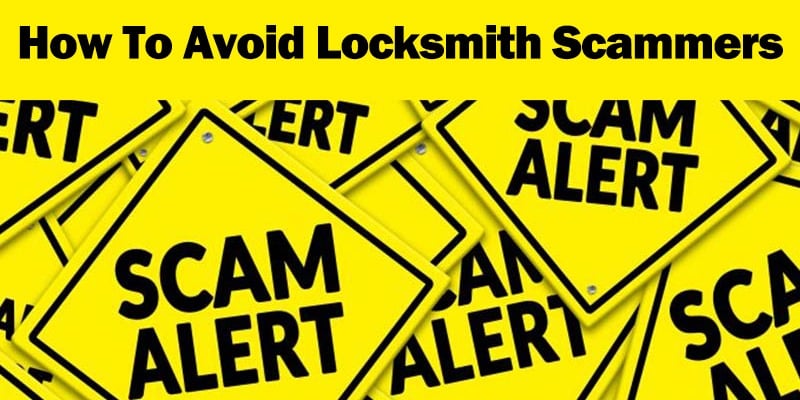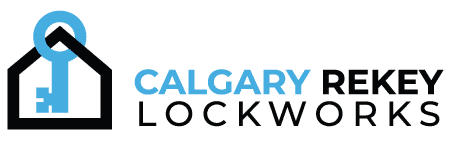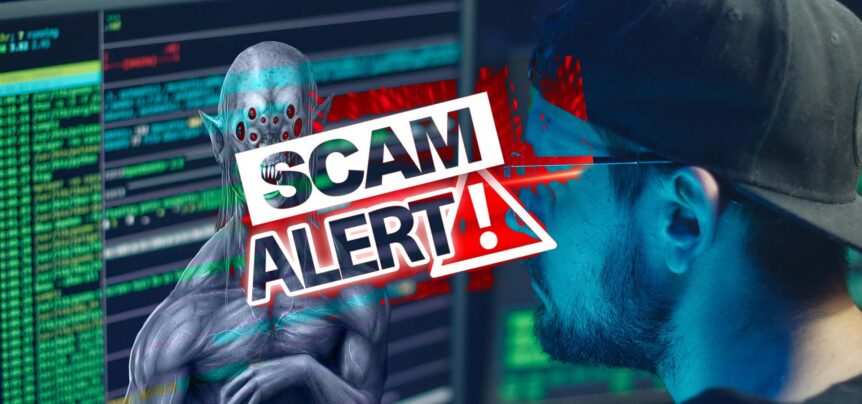Locks are an essential part of our daily lives, providing us with a sense of security and privacy. However, when we are locked out of our homes or cars, we often need the services of a locksmith to regain access. Unfortunately, not all locksmiths are genuine, and the fake locksmith scam is a growing problem in many communities. This article will explore the issue of fake locksmiths, how they operate, and what steps you can take to avoid being scammed.
What are Fake or “Scam” Locksmiths?
Fake or “scam” locksmiths are individuals or companies that pose as legitimate locksmiths but are only interested in scamming unsuspecting clients. They often advertise themselves as being local, licensed, and experienced, but in reality, they lack the necessary skills, training, and qualifications to provide quality locksmith services. They rely on deceptive advertising, aggressive marketing tactics, and hidden fees to lure clients into using their services.
How do Fake Locksmiths Operate?
Fake locksmiths often use a variety of tactics to scam their clients. They may advertise low prices to attract customers, only to inflate their charges once they arrive at the job site. They may also use bait-and-switch tactics, promising one service but providing a different one. Some fake locksmiths may even damage locks intentionally to increase the cost of the job.
Signs of a Fake Locksmith
Here are some signs that you may be dealing with a fake locksmith scam:
- They do not have a physical storefront or a local phone number.
- They arrive in an unmarked vehicle or one that does not match the name on their business card.
- They do not ask for identification or proof of ownership of the property they are working on.
- They insist on drilling or replacing locks when other, less invasive methods would suffice.
- They provide a vague or incomplete estimate, with no mention of additional charges or fees.
- They do not have a valid license or insurance (visit Is your locksmith properly licensed).

How to Avoid The Fake Locksmith Scam
Here are some steps you can take to avoid being scammed by fake locksmiths:
- Research locksmiths in your area before you need one. Look for reputable companies with a physical storefront, a local phone number, and positive reviews.
- Ask for recommendations from friends, family, or neighbors who have used locksmith services before.
- Check if the locksmith is licensed, insured, and bonded. You can do this by contacting your state or local licensing agency.
- Ask for identification and proof of ownership before allowing the locksmith to work on your property.
- Request a detailed estimate that includes all charges and fees upfront.
- If the locksmith insists on drilling or replacing your lock, ask for an explanation and get a second opinion if necessary.
- Do not sign a blank work authorization form or a contract that includes blank spaces.
- Be wary of locksmiths who ask for payment upfront or only accept cash.
Conclusion
Fake locksmiths are a real problem that can lead to financial loss, property damage, and even personal harm. However, by being vigilant and taking the necessary precautions, you can protect yourself from their scams. Always research locksmiths in advance, check their credentials and ask for a detailed estimate before allowing them to work on your property. Remember, your safety and security are worth investing in.
FAQs
1. Are all locksmiths licensed and insured?
Not necessarily. It’s important to check the credentials of any locksmith you plan to use to ensure they are legitimate.
2. How can I find a reputable locksmith?
You can ask for recommendations from friends, family, or neighbors, or research locksmiths online to find reputable companies in your area.
3. Can I trust a locksmith who arrives in an unmarked vehicle?
Not necessarily. A legitimate locksmith will typically arrive in a marked vehicle with the company’s name and logo displayed prominently.
4. How can I verify a locksmith’s license and insurance?
You can contact your state or local licensing agency to verify a locksmith’s license and insurance.
5. What should I do if I suspect a locksmith is a fake?
If you suspect that a locksmith is not legitimate, do not allow them to work on your property. Instead, contact a reputable locksmith or local law enforcement for assistance.
6. Can I negotiate the price with a locksmith?
It’s always a good idea to get a detailed estimate upfront that includes all charges and fees. While you may be able to negotiate the price with a locksmith, be wary of locksmiths who offer unusually low prices or refuse to provide a detailed estimate.
By following these guidelines and staying alert to the signs of fake locksmiths, you can help protect yourself from scams and ensure that you get the quality locksmith services you need. Remember, prevention is always better than cure, so take the time to research and vet locksmiths in advance to avoid falling victim to their scams. Calgary Rekey Lockworks is rated A+ at The Better Business Bureau and rated as one of the best car Locksmiths by the Clever Canadian.

